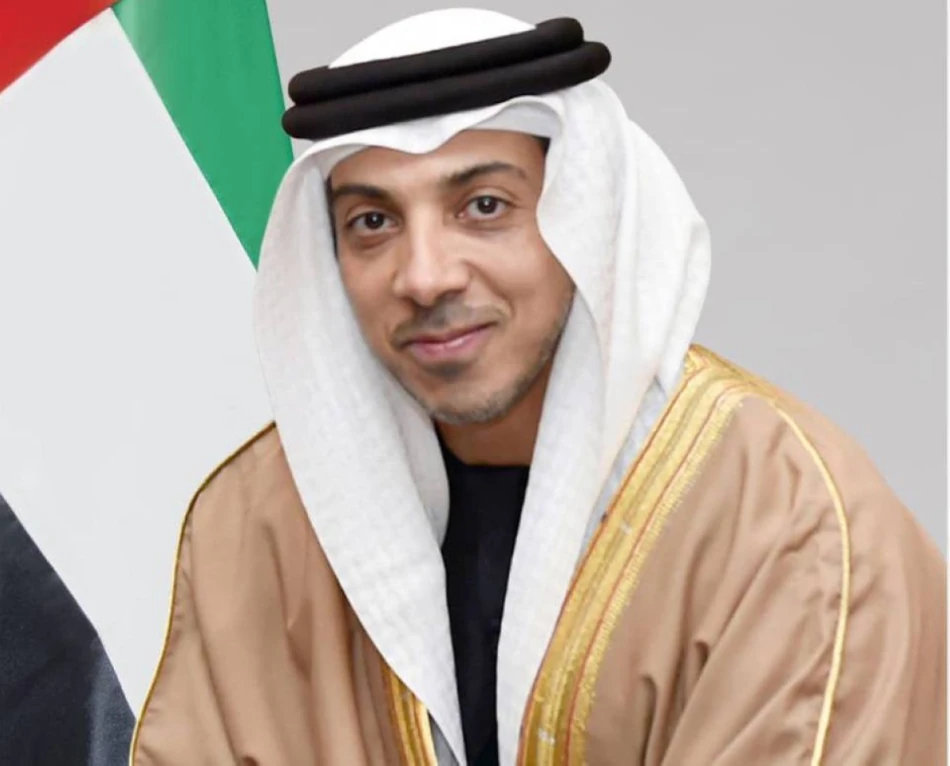
UAE Deputy PM Leads Delegation to Vital Gulf, Arab-Islamic Summits in Doha
UAE Delegation Arrives in Doha for Emergency Gulf and Arab-Islamic Summits on Israeli Aggression
The United Arab Emirates has dispatched a high-level delegation to Qatar for two critical emergency summits addressing Israeli military actions, signaling the Gulf region's coordinated diplomatic response to escalating Middle Eastern tensions. The UAE's participation underscores the strategic importance of regional unity in addressing security challenges that could reshape geopolitical dynamics across the Arab world.
High-Level Diplomatic Mission
Sheikh Mansour bin Zayed Al Nahyan, UAE's Deputy President and Deputy Prime Minister, arrived in Doha on behalf of President Sheikh Mohamed bin Zayed Al Nahyan to lead the Emirates' delegation. The mission includes Foreign Minister Sheikh Abdullah bin Zayed Al Nahyan and several other senior ministers, reflecting the gravity with which Abu Dhabi views the current regional crisis.
The delegation was received at Hamad International Airport by Qatar's Deputy Prime Minister and Minister of State for Defense Affairs, Sheikh Saoud bin Abdulrahman Al Thani, demonstrating the diplomatic protocol befitting such urgent regional consultations.
Strategic Implications for Gulf Unity
Regional Coordination Mechanisms
The simultaneous convening of both Gulf Cooperation Council and Arab-Islamic emergency summits represents a sophisticated diplomatic approach that leverages multiple institutional frameworks. This dual-track strategy allows for both intimate Gulf coordination and broader Arab-Islamic consensus-building, potentially creating more comprehensive policy responses than either forum could achieve independently.
UAE's Diplomatic Balancing Act
The UAE's participation carries particular significance given its 2020 Abraham Accords normalization with Israel. Abu Dhabi now faces the complex challenge of maintaining its strategic partnership with Israel while demonstrating solidarity with Arab and Islamic positions on what the summits term "Israeli aggression." This delicate balance reflects the evolving nature of Middle Eastern diplomacy, where traditional alliance structures increasingly intersect with pragmatic bilateral relationships.
Economic and Investment Considerations
Regional instability typically triggers capital flight from Middle Eastern markets, but the UAE's established position as a regional financial hub may actually benefit from coordinated diplomatic responses that signal stability and predictability. The Emirates' ability to navigate complex regional dynamics while maintaining economic partnerships across traditional divides has become a cornerstone of its investment appeal.
For international investors, the UAE's diplomatic engagement demonstrates the kind of regional leadership that can help contain conflicts before they disrupt broader economic activity. The country's track record of balancing competing regional interests while maintaining business-friendly policies makes it an attractive hedge against Middle Eastern volatility.
Broader Regional Context
These emergency summits occur against the backdrop of ongoing regional realignments that have seen Gulf states pursue increasingly independent foreign policies. Unlike previous decades when Saudi leadership was largely unquestioned, today's Gulf diplomacy features multiple power centers, with the UAE, Qatar, and Saudi Arabia each bringing distinct perspectives and capabilities to regional challenges.
The choice of Qatar as host nation is particularly noteworthy, given the country's recent emergence from a regional blockade and its successful hosting of the 2022 World Cup. Doha's selection suggests a normalization of its regional standing and recognition of its diplomatic capabilities in mediating complex regional issues.
Most Viewed News

 Sara Khaled
Sara Khaled






